Swedish Diplomat Detained In Iran Faces 'Strict Punishment'
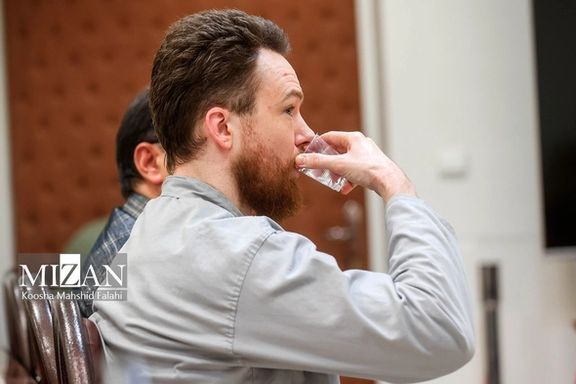
The fifth and concluding trial session of Johan Floderus, a 33-year-old Swedish citizen and diplomat of the European Union, was held in Tehran.

The fifth and concluding trial session of Johan Floderus, a 33-year-old Swedish citizen and diplomat of the European Union, was held in Tehran.
Floderus has been detained by the security forces of the Islamic Republic since April 2022 on what appears to be trumped up charges of espionage.
According to reports from Fars News Agency, affiliated with the Revolutionary Guards, the session took place on Sunday at the Tehran Revolutionary Court. The judge reiterated charges against Floderus, including "corruption on earth through actions against national security," "assembly and collusion with the intention of committing a crime against national security," and "intelligence cooperation" with Israel.
The judge based the accusations on reports from Iran's security apparatus, along with evidence such as Floderus’ presence in Iranian border cities and his travels to various countries, including Israel.
During the session, the prosecutor's representative urged for the strictest punishment for the Swedish citizen. Floderus and his legal team have been granted one week to present their final defense statement to the court.
Floderus, a graduate of Oxford University, previously served in the Afghanistan desk of the EU’s external services department. His detention is seen by observers as potentially linked to Tehran's efforts to exert pressure on the Swedish government. The pressure could be aimed at securing the release of Hamid Nouri, a former judicial official of the Islamic Republic, who has been sentenced to life imprisonment for involvement in the massacre of political prisoners in the 1980s, in which up to 5,000 were executed.
The Stockholm Court of Appeals upheld Nouri's life sentence in December.
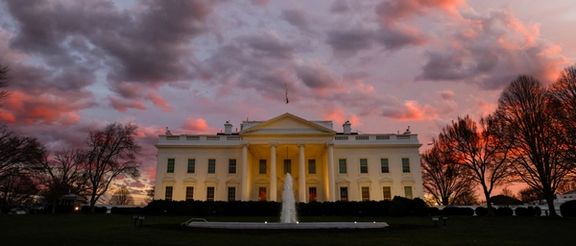
President Joe Biden is under increasing pressure to retaliate against Iran following an attack by Iran-backed militias that killed three US soldiers and wounded 34.
US troops in Iraq and Syria have been facing constant missile and drone strikes since last October when Israel began its onslaught on Gaza in response to Hamas’ rampage of the Israeli border communities. This is the first time, however, that such strikes have resulted in loss of American life – which many in Washington consider to be a red line.
The loss of life, after repeated warnings by his Iran policy critics, has left Biden with very little option but to escalate.
Biden and Secretary of Defense Lloyd Austin vowed Sunday evening to “hold all those responsible to account,” pointing out in clear terms who they had in mind. “We know it was carried out by radical Iran-backed militant groups operating in Syria and Iraq,” Biden said.
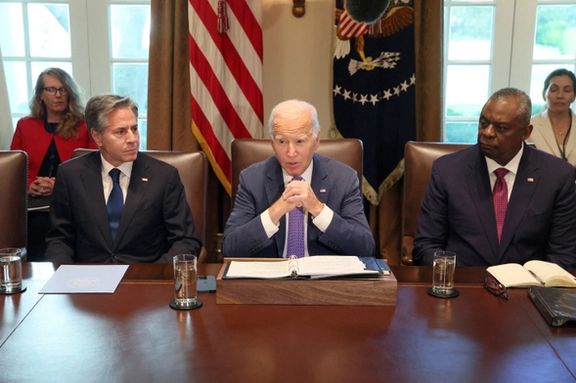
Tehran claimed innocence almost immediately, continuing its policy of 'plausible deniability.' “Iran has nothing to do with these attacks,” Iran’s official news agency IRNA quoted the country’s UN representative as saying. “The hostilities are between the US army and the resistance forces in the region that are engaged in tit-for-tat attacks.“
This message is unlikely to be taken seriously at the Pentagon or the White House, though, where, according to various reports, top level deliberations were underway Sunday evening to decide on an appropriate response.
But what would that response be?
“Washington could sink the Iranian navy, like then President Ronald Reagan did in the 1980s,” wrote Matthew Kroenig, vice president of the Atlantic Council. “It could strike Iranian naval bases. It could target Iranian leadership, following in the footsteps of then President Donald Trump’s killing of Iranian General Qassem Soleimani.”
That is in fact the incident many cite to argue that Biden’s fear of Iran’s retaliation is unfounded, since, the argument goes, the regime’s “hard revenge” for Soleimani was no more than a missile strike on a US base with enough notice for the personnel to evacuate.
A more controversial, and perhaps less likely, response could be to target Iran’s “nuclear and missile program,” Kroenig suggested, “which must be addressed soon regardless, as the Pentagon estimates its nuclear breakout timeline to be only twelve days.”
Any such scenario, and many more being discussed in US media, would be harsher than what President Biden has ever countenanced. But it has been that very unwillingness to be tough, his critics say, that has led to the loss of American life –and to this fateful moment for Biden’s political fortunes in an election year.
“The sorry truth is that these casualties are the result of the President’s policy choices,” reads the Wall Street Journal’s editorial Monday. “The President has put his anxieties about upsetting Iran and risking escalation above his duty to defend U.S. soldiers abroad.”
This is perhaps as harsh a criticism as a US President can get. And yet it's become so strikingly commonplace in Joe Biden’s case.
Questions are also being asked as to why the air defense systems at the US base (T-22 in northeast Jordan, bordering Syria) did not detect or shoot down the drone(s). According to the latest reports, 8 of the 34 injured soldiers have been airlifted to another country for treatment.
Any further loss of life could intensify pressures on the Biden administration to confront Iran directly, especially in an election year, with Donald Trump as the likely opponent, who, not surprisingly, is making the most of Biden’s predicament.
“Three years ago, Iran was weak, broke, and totally under control,” Trump said in a statement Sunday night. “Then Joe Biden came in and gave Iran billions of dollars, which the Regime has used to spread bloodshed and carnage throughout the Middle East. This attack would NEVER have happened if I was President, not even a chance.”
Many other Republicans also attacked Biden and his team for “appeasing” the regime in Iran and allowing it to undermine American interests in the Middle East undeterred.
“The only answer to these attacks must be devastating military retaliation against Iran’s terrorist forces,” Senator Tom Cotton said in a statement. “Anything less will confirm Joe Biden as a coward.”.
Many other GOP heavyweights joined in on the attack on the President , including minority leader Senator Mitch McConnell, the Armed Service Committee member Senator Rick Scott, and the committee’s Ranking Member Senator Roger Wicker.
“We must respond to these repeated attacks by Iran and its proxies by striking directly against Iranian targets and its leadership,” Wicker posted on X. “The Biden administration's responses thus far have only invited more attacks. It is time to act swiftly and decisively for the whole world to see.”
Some Democrats also called for action, in a clear sign of the hardening of moods on the Capitol.
“Every single malignant actor responsible must be held accountable,” the House minority leader Hakeem Jeffries wrote on X.
President Biden has said that the United State would retaliate at a time and in a way that it sees fit. If the mood in Washington is any indication, the response should be hard and delivered early.
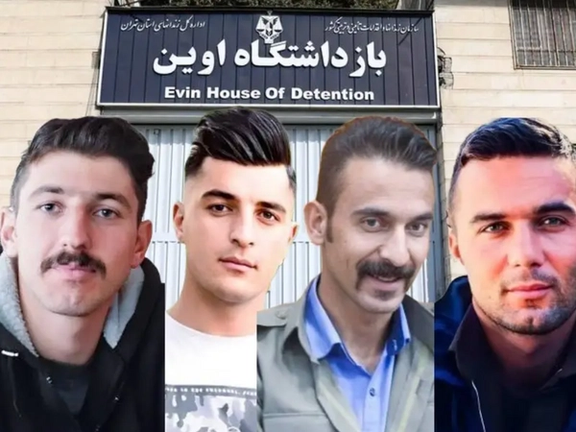
The Islamic Republic's regime has executed four Kurdish political prisoners that it accused of involvement in a plot to bomb an Iranian defense facility.
The four prisoners, Pejman Fatehi, Mohsen Mazloum, Mohammad (Hazhir) Faramarzi and Wafa Azarbar, were executed in Ghezel Hesar Prison in Karaj, west of Tehran, on Monday morning (local time), according to the Islamic Republic's Judiciary.
Their families had earlier been summoned to Evin Prison for a meeting in a sign of imminent execution. They were later transferred to Ghezel Hesar to be hanged.
Iran's Intelligence Ministry had announced their arrest in mid-2022, claiming that they had "illegally entered Iran from Iraqi Kurdistan and intended to bomb a Defense Ministry facility used for producing equipment."
The Judiciary's website said in a statement on Monday that they had been recruited by Israel's Mossad through the Kurdish group Komala to bomb the Defense Ministry facility in Najafabad, Isfahan Province, on July 23, 2022.
"In order to get prepared for the operation, they were sent to African countries several times and were trained in their military bases in the presence of Mossad officers," the Judiciary's news agency said.
"Even the Mossad chief David Barnea participated in one of the training sessions and delivered a speech to boost their morale," the Judiciary's report claimed.
The Norway-based Iran Human Rights NGO strongly condemned the execution of the four political prisoners and called on the international community to break its silence regarding the wave of executions in Iran.
The NGO also called on Nada Al-Nashif, the UN Deputy High Commissioner for Human Rights, to cancel her upcoming trip to Iran in protest to the executions.
Mahmoud Amiry-Moghaddam, the director of Iran Human Rights NGO, said, "The execution of these four prisoners was based on confessions obtained under torture and without a fair trial, and are considered extrajudicial killings for which Khamenei and the corrupt judiciary of the Islamic Republic must be held accountable."
He further noted that "the international community must show a practical response to the rampant and daily executions by the Islamic Republic, and the smallest response from the UN High Commissioner for Human Rights to these executions would be the cancellation of Nada Al-Nashif's trip to Iran and cessation of dialogue with the authorities of the Islamic Republic."
Footage aired on state television in October and December 2022, purportedly depicted the four men confessing to planning a bomb attack near the central city of Esfahan, allegedly under Israeli intelligence guidance. Political and security prisoners in Iran are denied transparent and fair trials, often without their own defense attorneys.
The Islamic Republic, which has the highest rate of executions in the world after China, has executed 90 people just from December 22 to January 21.
In a recent revelation, UN experts disclosed that at least 834 people were executed in Iran in 2023, with eight of them linked to nationwide protests. The experts urgently called on the Iranian government to halt the surge of executions and undertake a comprehensive review of the use of the death penalty.
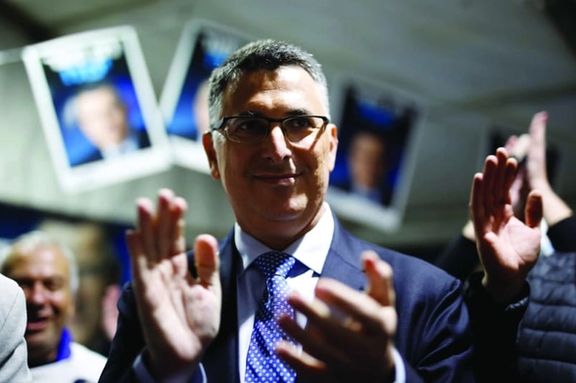
An Israeli cabinet minister has announced plans to initiate efforts to bring a case against Iran to the International Court of Justice, focusing on charges of genocide.
Gideon Sa'ar highlighted that Iranian leaders have openly advocated for the destruction of Israel and provided significant support to Hamas and other Gaza-based terrorist groups responsible for the October 7 attacks.
Experts in international law suggest that the massacres and other crimes committed by Hamas on October 7 could potentially be categorized as a genocidal act. This is because they appear to have been aimed at the destruction, “in whole or in part”, of a national group, specifically Israelis.
“There are public statements by senior Iranian officials in favor of destroying Israel,” Sa’ar told the Kan public broadcaster.
“Iran finances, arms, and trains all the jihadi terrorist organizations including Hamas and Islamic Jihad which carried out October 7, so in my opinion there is an abundance of evidence which can be submitted to the court in the Hague,” added Sa’ar, a former justice minister.
“Israel is a small and persecuted nation that is fighting for its life and at the same time is fighting on the international stage for its right to self defense. It is a nation that is truly at risk of genocide given that there are enemies around it that declaredly want to destroy it,” he underlined.
The Iranian regime frequently issues threats against Israel. Despite the threats, Tehran has not directly attacked Israel but continues to support its proxies in the vicinity of Israel, especially after Hamas’ surprise attack on Israel on October 7 which killed more than 1,100 Israelis, mostly civilians.
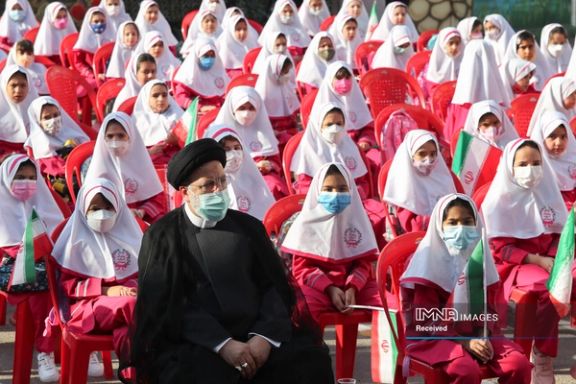
Iran's President, Ebrahim Raisi, has urged action against voluntary termination of pregnancy by women, as the birth rate has significantly fallen in the past decade.
He said on Sunday that there is a need for a "serious confrontation with abortion as an ugly phenomenon" through "religious teachings and artistic productions."
Amid the prevailing economic hardships, which have left many struggling to meet their basic needs, Raisi expressed concern about the downward trajectory of the population. He urged government agencies to harness their resources and capabilities to bolster population growth.
Over recent decades, Iran has witnessed a steady decline in childbirth rates, with the population growth rate dropping from 4.8 percent in the early 1980s to below one percent in recent years.
Supreme Leader Ali Khamenei has called for efforts to boost Iran's population as a top priority and an essential policy for the Islamic Republic, given its position as a leading Shia country in the Muslim world.
In response to Khamenei's directive, the predominantly hardliner-dominated parliament passed a law in March 2022 mandating state entities to actively promote marriage and childbirth. The law also prohibits public health services from offering family planning options.
Critics of the population increase policy argue that the Islamic Republic has failed to improve living standards, with nearly 50 percent of the population living below the poverty line. Many others continue to face escalating economic hardships despite holding multiple jobs.
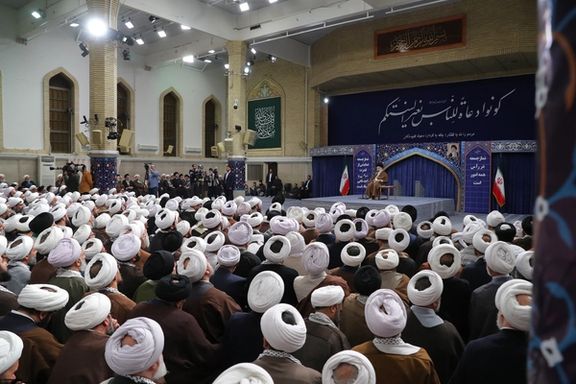
As the hijab issue divides the people and the government in Iran, politicians also debate its impact on the regime’s legitimacy and the upcoming elections in March.
While hardline clerics take advantage of every opportunity to condemn women who defy compulsory hijab, other more pragmatic or opportunistic figures, including Supreme Leader Ali Khamenei are attempting to court women's support in the lead-up to the parliamentary and Assembly of Experts elections.
Khamenei, without specifically addressing the hijab issue, said in a recent speech that "Not adhering to religious obligations in maintaining one’s appearance does not necessarily reflect a lack of belief in the regime."
However, in a meeting with a selected group of veiled women, Khamenei defined women's political participation as "encouraging” their husbands and children to actively take part in the election. The vernacular word Khamenei used for "encouraging" was "vadar kardan" which also implies obliging someone to take a specific action. He added that "women can play a part in this area both at their homes and in the streets."
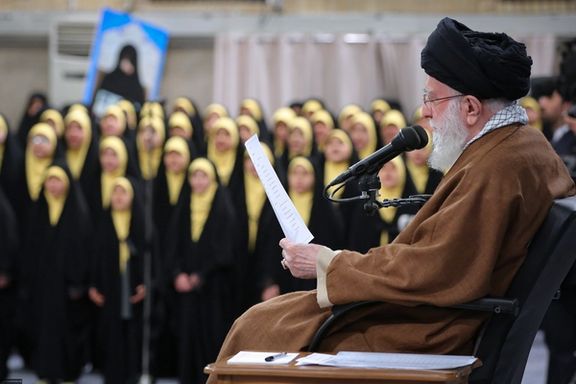
Guardian Council spokesman Tahan Nazif also implied that women without hijab may vote at the polling stations. He said: "No one should be denied their right to vote. The issue of hijab should not divide the people."
According to Ayatollah Hossein Mousavi Tabrizi, the secretary of the association of seminary teachers, the number of women who defy hijab in Qom, the home of the main Shiite seminary and the most religious town in Iran is "eye-catching".
Tabrizi said that defying compulsory hijab is now a symbol of expressing opposition to the government. The cleric added that women from both old and new generations defy the compulsory hijab in the religious center.
He further added that many people in Iran do not believe in the religious rules, adding that on the other hand, religious propaganda in Iran is not consistent with the people's beliefs and customs, although some of the people defy hijab only to show their opposition to the system.
Recently, the police chief in Qom revealed that approximately 74,000 warning text messages had been issued to women defying compulsory hijab since the start of the current Iranian year in March 2023. Additionally, 1,968 women were referred to the court during this period to pay penalties for violating hijab rules, marking a six-fold increase compared to the previous year.
Sociologist Mohammad Reza Javadi Yeganeh expressed concerns that confiscating women's vehicles as punishment for defying hijab could lead to desperation within families, fueling hatred toward the system and potentially sparking civil unrest.
The rise in cases of hijab defiance in a religious city like Qom has been seen by some as a failure of the government's hijab policy. This difference in perspective may explain the disagreement between Mousavi Tabrizi, a former general prosecutor, and hardliners regarding their treatment of women who defy hijab.
In another development, the Friday Prayer Imam of Mashhad, firebrand cleric Ahmad Alamolhoda said in his sermons on January 26, that defying hijab will be eradicated only if the people want it. Meanwhile he called the defiance a mischievous conspiracy by "the enemies." Many Iranian officials, including in law enforcement, have blamed foreign enemies for women rejecting the hijab. But they also blame an expected low turnout in the election on “the enemy,” and not the regime’s economic failures and repression.
Last year, Alamolhoda, who is President Ebrahim Raisi’s father-in-law, opined that the fundamentalist hijab bill prepared by hardliners in the parliament was not good enough to eradicate “the non-Islamic behavior” of Iranian women. Strongly criticizing the bill, Alamolhoda said if it passed, it would promote unveiling rather than prevent it.